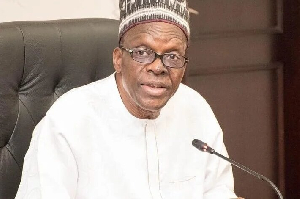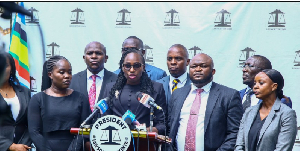Work on a new facility in Accra for the purchase and storage of electronic and electrical scraps for onward recycle is scheduled for completion by June next year.
The establishment of the facility, also known as Hand-Over-Centre, is part of Phase One of the Recycling and Disposal of Waste of Electrical and Electronic Equipment in an Environmentally Sound Way project.
Financed by the German Co-operation (GIZ) at a cost of €10 million, the project is being implemented by the Ministry of Environment, Science, Technology and Innovation (MESTI) and the Environmental Protection Agency (EPA).
At a workshop for Editors in Accra yesterday, Director of Policy Planning, Monitoring and Evaluation, MESTI, and Project Coordinator, Lydia Essuah, said the Phase One of the project was for a period of three years, from 2018 to 2021.
Detailing the objectives of the project, she stated that due to illegal imports, population growth and changing consumer habits, there was increased quantities of electrical and electronic waste in the country.
She noted that in order to obtain the valuable metals that could be recycled or sold, informal collectors incinerate the plastic parts or cable coating, a process which was harmful to health.
The project, she said, was designed to encourage the informal collectors to dispose of and recycle electronic waste in an environmentally-sound manner while realising the financial benefits.
“The necessary thing is to minimise negative environmental and human health impacts from improper management of electronic wastes.
‘It will further help in the transitioning of polluting electronic waste recovery activities from the informal sector to the formal sector without removing jobs from the lowest-income group,” Mrs Essuah added.
She stated that the success of the facility would inform the scaling-up of the project to all regions of the country for improved electronic waste management and job creation.
Chief Director of MESTI, Cynthia Asare Bediako, emphasised that the project had been designed to create jobs and ensure that the environment was protected.
“This project has been designed to leave no one behind in managing the country’s waste economy. We urge all in the various value chain to take advantage of the project and build sustainable businesses,” she said.
Vincent Nartey Kyere, E-Waste Expert at MESTI E-Waste Project Implementation Unit, said at the inception of the project satellite in June earlier this year, 250 scrap dealers were already transacting business at the pilot centre with more than 30 tonnes of cables collected.
He said the project would, in due course, introduce three additional electronic waste types, including mixed batteries, thermoplastics and Cathode Ray Tubes (CRTs).
So far, he noted, 32 recycling companies had expressed interest to operate as off-takers for the centre, adding that about four or five would be certified by the EPA after all of them had undergone audit.
Click to view details



Business News of Tuesday, 15 December 2020
Source: ghanaiantimes.com.gh

















